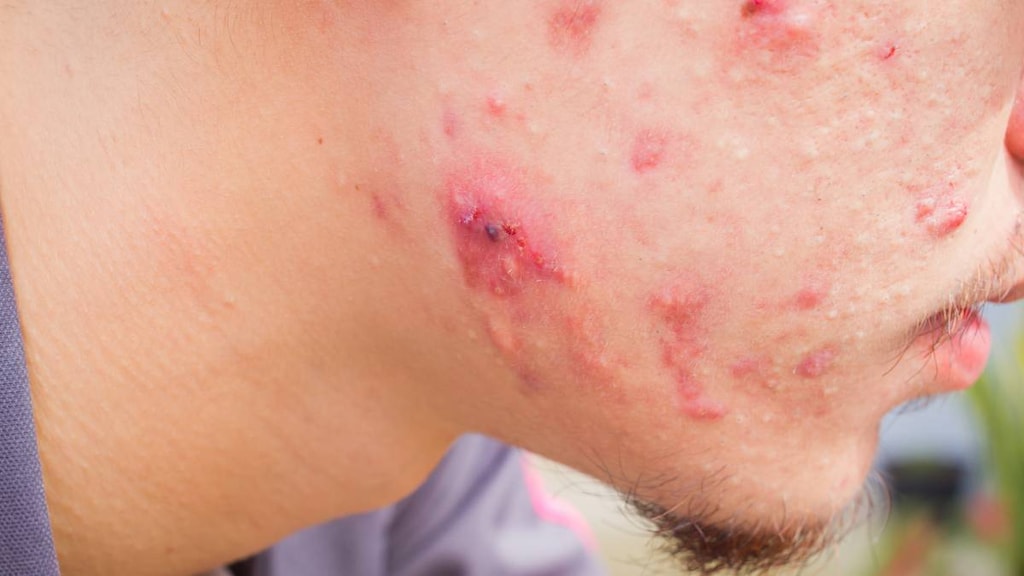What is Veltin?
Veltin Gel is prescription medicine used on the skin to treat acne in people 12 years and older.
It is not known if Veltin Gel is safe and effective in children younger than 12 years.
What is the most important information I should know about Veltin?
For use on skin only (topical use). Do not get Veltin Gel in your mouth, eyes, or vagina.
Who should not usee Veltin?
Do not use Veltin Gel if you have:
- Crohn’s disease
- ulcerative colitis
- had inflammation of the colon (colitis) with past antibiotic use
Talk to your doctor if you are not sure if you have one of these conditions.
What should I tell my healthcare provider before using Veltin?
Before using Veltin Gel, tell your doctor if you:
- have any allergies
- plan to have surgery with general anesthesia. One of the medicines in Veltin Gel can affect how certain anesthesia medicines work.
- have any other medical conditions
- are pregnant or plan to become pregnant. It is not known if Veltin Gel may harm your unborn baby.
- are breastfeeding or plan to breastfeed. It is not known if Veltin Gel passes into your breast milk. One of the medicines in Veltin Gel contains clindamycin. When clindamycin is taken by mouth or injection, it may pass into breast milk. You and your doctor should decide if you will take Veltin Gel or breastfeed. You should not do both.
Tell your doctor about all the medicines and skin products you use. Especially tell your doctor if you take medicine that contains erythromycin. Veltin Gel should not be used with products that contain erythromycin.
Know the medicines you take. Keep a list of your medicines and show it to your doctor and pharmacist when you get a new medicine.
How should I use Veltin?
- Use Veltin Gel exactly as prescribed.
- Your doctor will tell you how long to use Veltin Gel.
- Do not apply Veltin Gel more than one time each day.
- Do not use too much Veltin Gel, because it may irritate your skin.
Instructions for applying Veltin Gel:
- At bedtime, wash your face gently with a mild soap; rinse with water.
- Pat the skin dry.
- Squeeze a pea-sized amount of medication onto one fingertip. Then, gently rub over the entire affected area. Do not get Veltin Gel in your eyes, mouth, or on your lips.
What should I avoid while taking Veltin?
- Limit your time in sunlight. Avoid using tanning beds or sun lamps. If you have to be in sunlight, wear a wide-brimmed hat or other protective clothing. Apply a sunscreen every morning and re-apply during the day as needed.
- Avoid wind and cold weather during treatment with Veltin Gel. These may be irritating to your skin.
- Avoid using abrasive soaps and cleansers. These may cause increased skin irritation with Veltin Gel.
What are the possible side effects of Veltin?
Veltin Gel may cause serious side effects, including:
- Inflammation of the colon (colitis). Clindamycin, one of the ingredients in Veltin Gel, can cause severe colitis that may lead to death. Stop taking Veltin Gel and call your doctor if you develop severe watery diarrhea, or bloody diarrhea.
- Sunburn. Veltin Gel may cause your skin to become sunburned more easily. If your face is sunburned, do not use Veltin Gel until your sunburn is completely healed. Tretinoin, one of the medicines in Veltin Gel, makes your skin more sensitive to sunlight. See “What should I avoid while using Veltin Gel?”
Common side effects of Veltin Gel include:
- Skin irritation. Veltin Gel may cause skin irritation such as dryness, peeling, burning, or itching.
Talk to your doctor about any side effect that bothers you or that does not go away.
These are not all the side effects with Veltin Gel. Ask your doctor or pharmacist for more information.
Call your doctor for medical advice about side effects. You may report side effects to FDA at 1-800-FDA-1088.
General information about the safe and effective use of Veltin
Medicines are sometimes prescribed for purposes other than those listed in the patient information leaflet. Do not use Veltin Gel for a condition for which it was not prescribed. Do not give Veltin Gel to other people, even if they have the same symptoms you have. It may harm them.
This patient information leaflet summarizes the most important information about Veltin Gel. If you would like more information, talk with your doctor. You can also ask your pharmacist or doctor for information about Veltin Gel that is written for healthcare professionals. For more information call 1-866-665-2782.
How should I store Veltin?
- Store Veltin Gel at room temperature, between 59°F to 86°F (15°C to 30°C).
- Protect from freezing.
- Keep Veltin Gel away from heat and light.
- Keep Veltin Gel and all medicines out of the reach of children.
What are the ingredients in Veltin?
Active Ingredients: clindamycin phosphate and tretinoin
Inactive ingredients: anhydrous citric acid, butylated hydroxytoluene, carbomer homopolymer (type C), edetate disodium, laureth 4, methylparaben, propylene glycol, purified water, and tromethamine.





